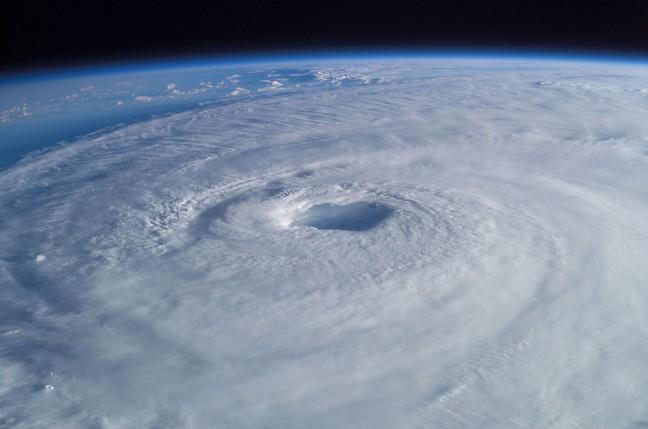After Hurricane Irma slammed southern Florida and devastated the Caribbean coast, two University of Wisconsin experts reflected on Hurricane Irma’s unanticipated magnitude and the government’s disaster relief response.
Sarah Griffin, now a researcher at the Cooperative Institute for Meteorological Satellite Studies, spent her undergraduate and graduate career at UW studying atmospheric and ocean sciences. Griffin said what stood out to her most about Hurricane Irma was how long it maintained such high intensity.
Usually in cyclones of this magnitude, the outer wind ring of the hurricane will cut off energy to the inner ring of winds, Griffin said. This is called an eyewall replacement cycle, which causes cyclones to lose intensity over time.
Hurricane Irma kept its intensity for four to five days, despite having multiple eyewall replacement cycles, Griffin said. It was stronger and longer in comparison to other storms of this magnitude.
“It happened to take the exact right path, where it hit a bunch of islands,” Griffin said. “If Irma had been 100 miles to the north, we probably wouldn’t have been hearing about the devastation in Barbuda, St. Thomas, Tortola and all of those smaller islands.”
UW professor Don Moynihan, an expert in crisis relief who conducted research on the response to Hurricane Katrina, spoke on the impact of Irma and Harvey in America.
Due to better weather forecasts, governments have slightly more advance notice on hurricanes like Irma and Harvey than past storms, Moynihan said. This advanced notice allowed governments to get involved before the hurricanes hit.
“There was never any doubt that federal help was going to be required,” Moynihan said.
Moynihan added the goal of crisis preparation is to reduce loss of life, which can be done through regulations that uphold better building regulations.
Coastal buildings are now built to handle strong winds and are outfitted with affordable options of generators and flood doors, said Moynihan.
Union leader discusses organized labor’s role in preventing climate change
“State and local governments, like in Florida and Texas, were effective at helping people get out of harm’s way,” Moynihan said.
Disaster relief is an intergovernmental project in the United States, Moynihan said. Preparation starts with local governments, then moves to state and federal involvement.
The Department of Homeland Security and Federal Emergency Management Agency are the main branches of the U.S. government that address natural disasters.
Moynihan said within the last sixteen years, the federal government has been making efforts to improve disaster relief.
On the international level, however, the rebuilding process for islands affected by Irma will involve many parties, Griffin said.
Some of the islands impacted by the cyclone are international protectorates of other countries, meaning the protectorate countries will take on rebuilding, Griffin said.
The island of Barbuda, which is currently 95 percent uninhabitable, is one of many nations that will rely on international aid, Griffin said.
Following Irma, the first steps to recovery will be to restore power to affected areas, evacuate tourists and ship resources in, Griffin said.
“Recovery will be a much larger story that develops over time,” Moynihan said.

















